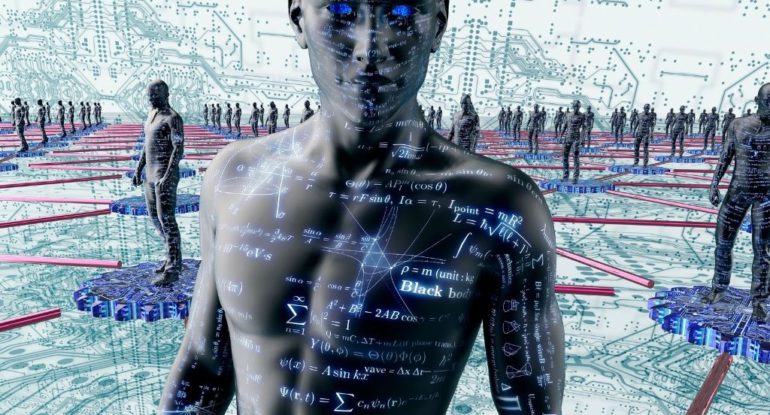How the blockchain will radically transform the economy

Blockchain technology is a decentralized database that stores a registry of assets and transactions across a peer-to-peer network. The transactions are secured through cryptography, and over time, that transaction history gets locked in blocks of data that are then cryptographically linked together and secured. This creates an immutable, unforgeable record of all of the transactions across this network. This record is replicated on every computer that uses the network.
You can think of blockchain as an open infrastructure that stores many kinds of assets. It holds the history of custodianship, ownership, and location for assets like the digital currency Bitcoin, and other digital assets like a title of ownership of IP. It could be a certificate, a contract, real-world objects, or even identifiable information. There are, of course, other technical details to the blockchain, but at its core, that’s how it works. It’s a public registry that stores transactions in a network and is replicated so that it’s very secure and hard to tamper with.
In our daily life, we face three significant uncertainties. Let us know how blockchain can help us get rid of them.
- Not knowing who we’re dealing with
If you want to buy something on eBay, the first thing you are going to do is look up who you’re buying from and use their reviews and ratings to lower uncertainty about who you’re dealing with. But the problem is that they’re very fragmented. Blockchains allow us to create an open, global platform to store any attestation about any individual from any source. This allows us to create a user-controlled portable identity. You can selectively reveal the different attributes about you that facilitate trade or interaction by revealing the cryptographic proof that these details exist and are signed off on. Having this kind of portable identity around the physical world and the digital world means we can do all kinds of human trade in a totally new way.
- Not having transparency in a transaction
The problem in many companies is that they’re managing all of these different vendors across a horizontal supply chain. All the people that go into making a product don’t have the same database. They don’t use the same infrastructure, so it becomes really hard to see a product evolve over time transparently. Using the blockchain, we can create a shared reality across non-trusting entities. All of these nodes in the network do not need to know each other or trust each other, because they each have the ability to monitor and validate the chain for themselves. Using blockchains, we can create a decentralized database that has the same efficiency as a monopoly without actually creating that central authority. So all of these vendors and companies can interact using the same database without trusting one another. It means that consumers can have a lot more transparency.
- Not having recourse if things go wrong
Blockchains allow us to write binding contracts between individuals and then guarantee
that those contracts will bear out without a third-party enforcer. This means a lot of human economic activity can get collateralized and automated, and push human intervention to the edges, the places where information moves from the real world to the blockchain.
Blockchain technology is in its infancy, and we’re going to need to see a lot of experiments take place and probably fail before we truly understand all of the use cases for our economy. But there are tons of people working on this, from financial institutions to technology companies, start-ups, and universities, because it is not just an economic evolution but also an innovation in computer science. Blockchain gives us the technological capability to create a record of human exchange, currency exchange, all kinds of digital and physical assets, and our personal attributes in a totally new way. It has a lot of the benefits of the traditional institutions we’re used to, but it works in a decentralized manner and converts a lot of our uncertainties into certainties. Thus, we will face a world where distributed and autonomous institutions have a significant role.
Also, read – Why Venture Capitalists Are Spending Millions in Blockchain Startups?
Comments are closed.




























































